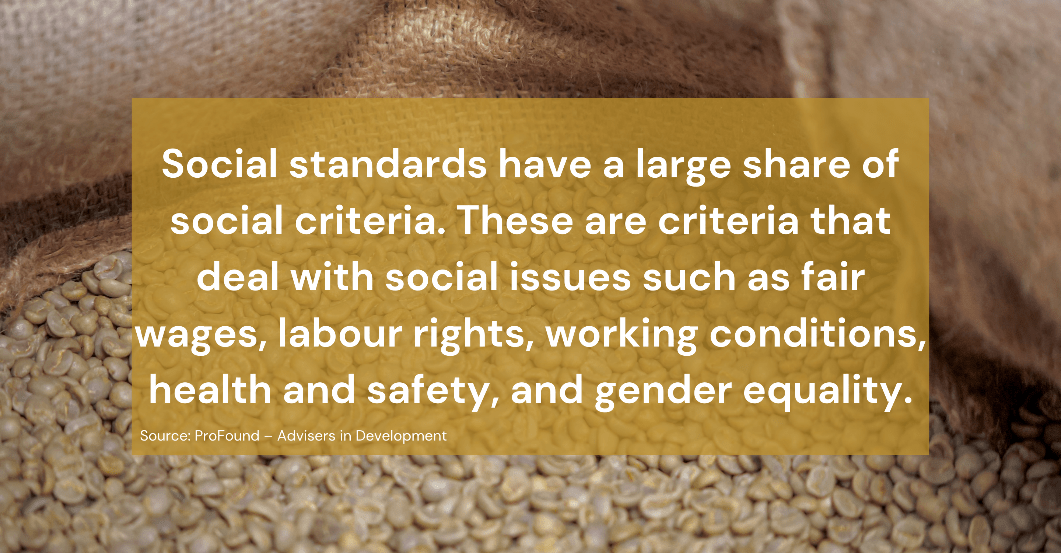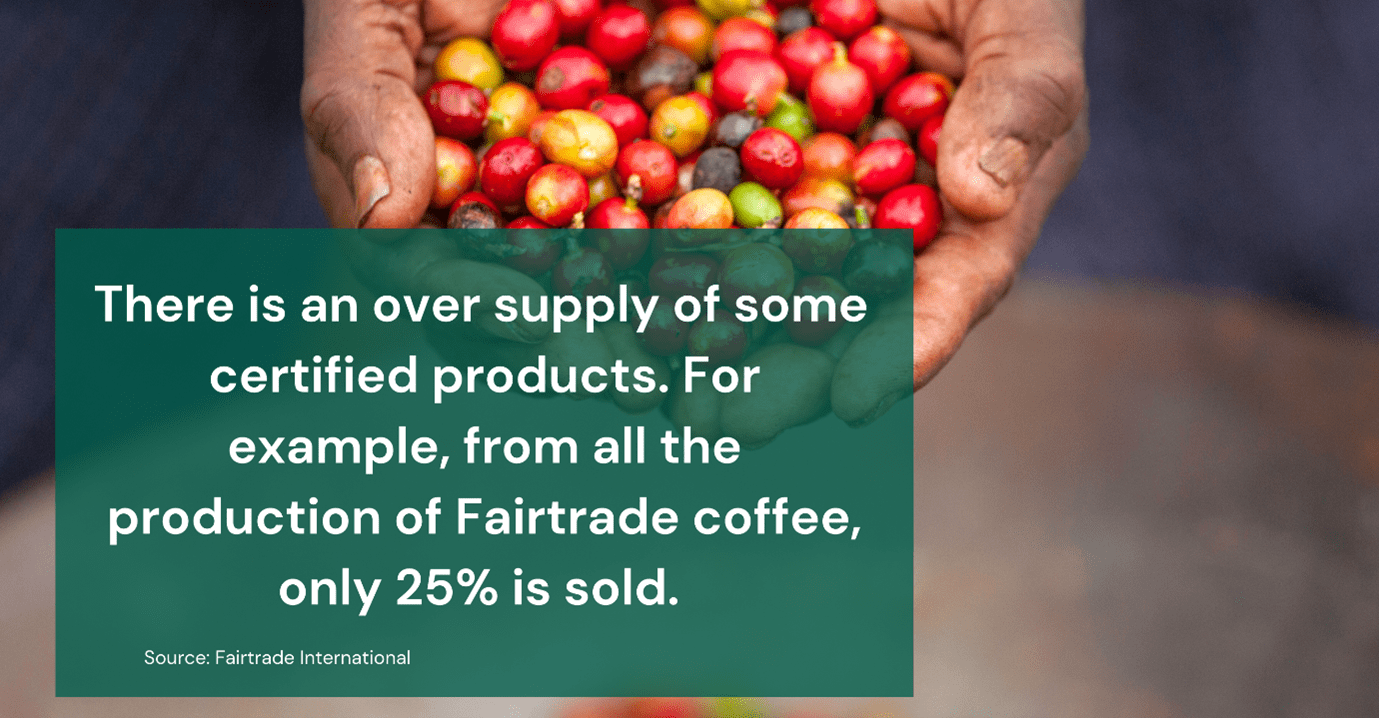Social issues across global value chains have received more attention over the past years. Standards serve as a tool to ensure good social practices. But with over 400 sustainability schemes to choose from, how do you find the best one for your business? ProFound consultants Lisanne Groothuis and Jolanda van Hal researched just that. On behalf of CBI, the Center for the Promotion of Imports from developing countries, they identified current trends in social standards, compared the main standards on the market and developed guidelines to help exporters find the best one for them. The study and webinar are online now.
What are social standards?
There are over 400 sustainability standards on the market, related to social, economic, and/or environmental criteria. Social standards have a large share of social criteria. These are criteria that deal with social issues such as fair wages, labour rights, working conditions, health and safety, and gender equality.
A product certification guarantees that a product has been produced, processed and traded according to the criteria of a specific standard. These standards are accompanied by logos that are used on consumer products. Examples include Fair Trade and Fair for life.

Social compliance standards refer to how a business protects the health rights and safety of its staff, supply, and value chain. Examples include the Business Social Compliance Initiative and Ethical Trading Initiative.
Trends and developments in social certification standards in Europe
The overall market share of social certifications in international trade may be small, but the demand for certification is growing. Both product certification and social compliance standards will continue to be important in the future. ProFound consultants identified the following trends that shape the market for social standards.
1. Sector-wide and national sustainability initiatives drive up demand for certifications
A growing number of national and sector-wide initiatives are being created to counter increasing sustainability concerns in Europe. These initiatives provide a platform for actors in the supply chain to share experiences and create a common understanding. Companies that sign up to these initiatives adopt their practices to contribute to the targets set. Examples include endorsing specific certification schemes or codes of conduct.
2. Retailers’ private own-label boost certification demands across Europe.
Certifications are becoming a prerequisite to enter the mainstream market for sectors like coffee, cocoa and bananas. This is partly driven by retailer commitments for third-party certification, which are strongest in retailers’ private-label products. These are gaining popularity and market share across Europe, because they offer similar characteristics as branded products at more affordable prices.
3. Supply of certified products may overshadow demand in some sectors
It is good to keep in mind that there is an oversupply of certified products in some sectors. For example, of all the production of Fairtrade coffee, only 25% is sold as certified coffee. The remainder is sold as conventional. Even though producers made the investments to certify their operations, they cannot sell all their coffee at a premium price.
Before committing to certification, producers should determine if there is sufficient demand for certified products. There are already movements that are trying to find a solution for this problem. For example, Fairtrade now requires coffee and cocoa operatives and traders to have a commitment for new Fairtrade sales volumes, that are confirmed by the end buyer.

4. Companies search for ways beyond certification
Brands and companies are also searching for ways to go beyond certifications, especially in high-quality and exclusive product segments. This can have different reasons, for example to differentiate from other brands, because certification might not be enough, or that brands don’t want to pay the licensing fees. Although certification will likely still be a tool to guarantee fair trading principles, these brands might work with shorter supply chains and aim for high transparency and traceability.
5. Social compliance audits are crucial to comply with European legislation
The European market shows that companies have been encouraged to take on responsibility of their supply chains on a voluntary basis. However, the results have not been sufficient. Some countries have decided to impose national mandatory due diligence laws. This means that companies that are subjected to these laws are obliged to report their due diligence efforts. The European Union is also working on new laws on Human Rights and environmental due diligence, which will come into force in 2023.
There is an increased need for social compliance audits of suppliers, and for supplier questionnaires to meet these stricter transparency requirements. This is a way for buyers to mitigate risk, specifically audit reports are seen as a proof of good supplier performance. This puts a lot of additional pressure on suppliers in terms of investments, costs, time, and other resources.
6. Drive for standardization in certification schemes and standards
There is a need for standardization of available schemes and standards. For consumers there are too many labels to know what they stand for and what to choose from. For suppliers, it is difficult and expensive to comply with many different audits required by buyers.
In response, standards are increasingly recognizing other standards as equivalents. New initiatives are being created that benchmark different schemes and standards. They want traders and retailers on the European market to accept a variety of standards as opposed to requiring one specific scheme from a supplier. This is to try to reduce the pressures on suppliers.
Interested to know how you can choose the best social standard for your company?
Would you like to know more?
You can read the full study here: https://www.cbi.eu/market-information/social-certifications
Or you can watch the webinar here for more information. In it, Solani Pandithasekera, the founding partner and CFO of Sri Lankan coconut exporter Serendipol provides tips based on her experience of getting and maintaining certification standards:
Questions?
Do you have questions about our trends and tips for social certification standards? Then don’t hesitate to get in touch with Jolanda van Hal (jvanhal@thisisprofound.com) or Lisanne Groothuis (lgroothuis@thisisprofound.com) via email.

